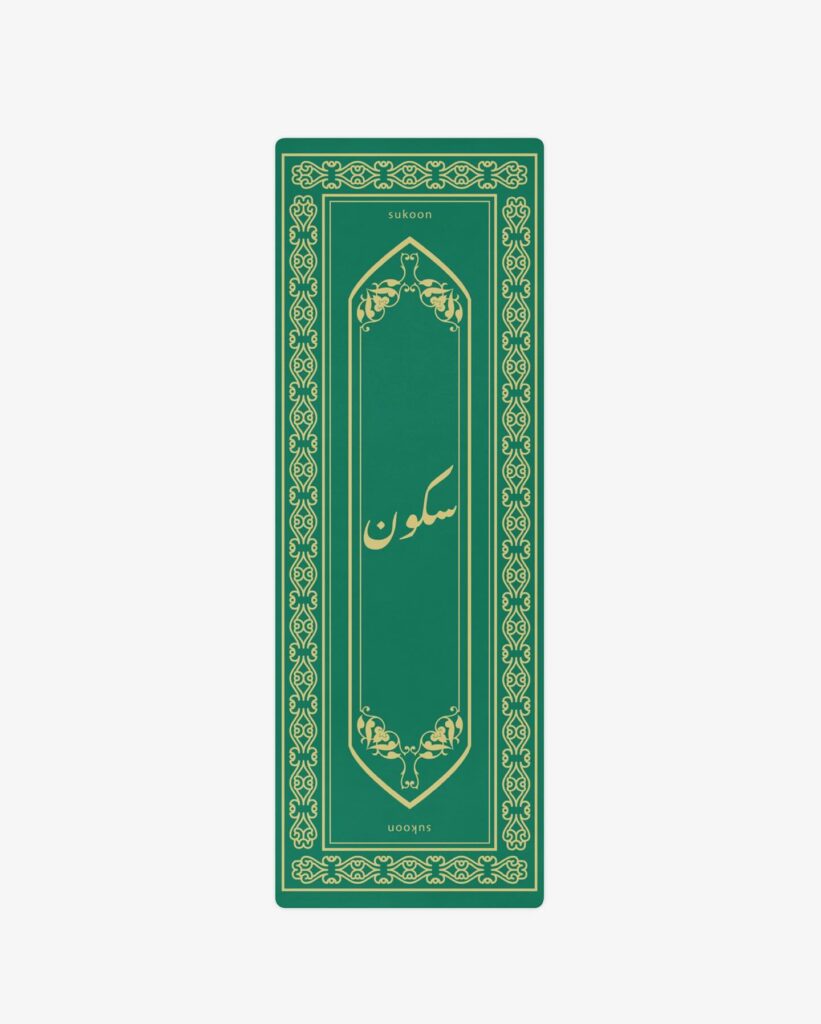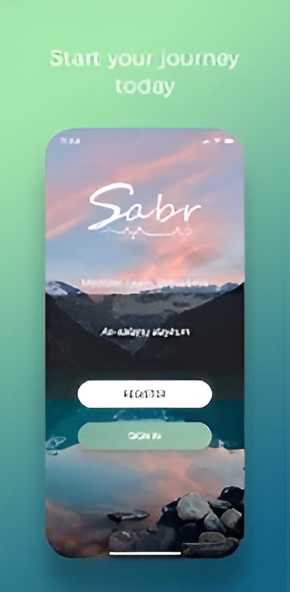Best Meditation Apps for Pakistanis: A Comprehensive Guide in 2025
Meditation has become increasingly popular worldwide as a tool for managing stress, improving mental health, and fostering mindfulness. In Pakistan, where life can often be fast-paced and stressful, meditation apps provide an accessible way to incorporate mindfulness into daily routines. Whether you’re a beginner or an experienced meditator, these apps can help you find peace and balance. This article explores the best meditation apps for Pakistanis, highlighting their features, benefits, and how they fit into the local lifestyle.

Why Meditation Matters in Pakistan
The hustle and bustle of Pakistani cities like Karachi, Lahore, and Islamabad can be overwhelming. From traffic jams to work pressures, many people struggle to find time for themselves. Meditation offers a simple yet powerful solution by helping individuals reduce stress, improve focus, and enhance emotional well-being. For someone living in a society where mental health discussions are still evolving, meditation apps can be a discreet and effective way to start practicing mindfulness.
How to Choose the Right Meditation App
Selecting the best meditation apps for Pakistanis depends on your personal preferences and goals. Here are some factors to consider:
1. Budget: If affordability is crucial, apps like Insight Timer offer extensive free content.
2. Time Commitment: For busy schedules, Simple Habit’s short sessions are ideal.
3. Focus Area: If you’re looking to improve sleep or manage anxiety, Calm might be the best fit.
4. Cultural Relevance: Apps like Sattva provide content rooted in South Asian traditions that may resonate more deeply with Pakistani users.
5. Community Support: Insight Timer’s forums and live workshops can help you connect with others on your mindfulness journey.
A Step-by-Step Guide to Starting Meditation
If you’re new to meditation, follow these simple steps using any of the recommended apps:
1. Download an App: Start with a free trial or explore free versions of Insight Timer or Calm.
2. Set Aside Time: Dedicate 5–10 minutes daily; mornings or before bed are ideal.
3. Choose a Guided Session: Pick a topic that resonates with your current needs (e.g., stress relief).
4. Find a Quiet Space: Sit comfortably in a quiet area where you won’t be disturbed.
5. Follow Instructions: Listen attentively to the guide and focus on your breathing.
6. Track Progress: Use app features like streaks or badges to stay motivated.
7. Expand Your Practice: Gradually explore advanced techniques like breathwork or mantra-based meditation.
Best Meditation Apps for Pakistanis
Here’s a curated list of meditation apps that are ideal for users in Pakistan, considering affordability, accessibility, and cultural relevance:
1. Insight Timer
Insight Timer is one of the most popular free meditation apps globally. It offers over 150,000 guided meditations on topics like stress relief, sleep improvement, and self-love. The app is particularly suitable for Pakistanis because it provides free access to most of its content, making it affordable for those who might not want to commit to paid subscriptions.
Key Features:
– Free guided meditations
– Customizable timer for unguided sessions
– Community features like live workshops and forums
– Content from renowned mindfulness experts[2]
Why It’s Great for Pakistanis: The free version offers ample resources without requiring payment, which is ideal in a country where disposable income can vary widely.
2. Calm
This app does what it says by taking you on a journey to a calmer mind. With its many features, users will find themselves feeling calmer after using the app. With guided meditations, stretching exercises, progress markers and features to promote sleep, the app lives up to its name.
Calm is known for its visually appealing interface and diverse range of meditation options. It includes sleep stories narrated by celebrities like Matthew McConaughey and guided meditations tailored to anxiety management.
Key Features:
– Sleep stories for better rest
– Daily meditations on various topics
– Mood check-ins with light journaling
– Breathwork exercises[5]
Why It’s Great for Pakistanis: Calm’s focus on sleep improvement is particularly helpful given the high prevalence of sleep disorders in urban areas due to noise pollution and stress.
3. Sakeenah
Sakeenah is a meditation app tailored for Muslims, offering mindfulness techniques rooted in Islamic teachings. It combines modern mental health practices with references from the Quran and Hadith, making it a great choice for those who want to integrate spirituality into their wellness journey.
Key Features:
– Guided meditations created by Muslim scholars and therapists
– Techniques for managing anxiety, stress, and depression
– Spiritual mindfulness practices aligned with Islamic principles
Why It’s Great for Pakistanis: Sakeenah resonates with the values of many Pakistani users by providing content that blends religion with modern mindfulness techniques[2].
4. Sabr

Sabr is another app designed specifically for Muslims, focusing on guided meditations and spiritual courses. It includes nasheeds (vocal-only tracks) and uplifting content that helps users navigate challenges while staying spiritually grounded.
Key Features:
– Research-backed guided meditations through an Islamic lens
– Spiritually uplifting courses curated by Muslim scholars
– Peaceful nasheed tracks for study, relaxation, and sleep
Why It’s Great for Pakistanis: With its focus on Islamic mindfulness and culturally relevant content, Sabr is ideal for those seeking a faith-based approach to meditation[4].
5. Insight Timer
While not exclusively designed for Pakistanis, Insight Timer offers a vast library of free guided meditations that can cater to diverse needs, including stress relief and sleep improvement. Its global community and customizable features make it highly versatile.
Key Features:
– Over 150,000 free guided meditations
– Customizable timer for unguided sessions
– Content from renowned mindfulness experts
Why It’s Great for Pakistanis: Insight Timer’s affordability and variety make it accessible to users across different socioeconomic backgrounds in Pakistan[1][3].
6. Headspace
Headspace is ideal for beginners who want structured guidance on how to meditate. Its step-by-step courses are easy to follow and cover a range of topics from stress management to focus enhancement.
Key Features:
– Beginner-friendly courses
– Daily personalized meditations
– Engaging animations to explain concepts
Why It’s Great for Pakistanis: Its simplicity makes it accessible even to those new to meditation or mindfulness practices[1][5].
7. Simple Habit
Simple Habit specializes in quick meditations that fit into busy schedules. With sessions as short as five minutes, this app caters to those who feel they don’t have enough time to meditate.
Key Features:
– Short meditations for busy lifestyles
– Prescriptive sessions tailored to specific challenges (e.g., commuting stress)
– Motivational tracking features like streaks and badges
– Monthly challenges for global users[4]
Why It’s Great for Pakistanis: The app’s short sessions are perfect for individuals juggling work, family responsibilities, and social commitments.
8. Ruh
Ruh integrates contemporary mindfulness practices with Islamic traditions. It offers features like sleep stories and dhikr-based meditations while also linking users to Muslim therapists through its platform.
Key Features
– Dhikr sessions to strengthen spiritual connection
– Sleep stories featuring Quranic recitations
– Access to Muslim therapists via RuhCare
– Modules like “The Wounded Healer” for emotional healing
Why It’s Great for Muslims: Ruh emphasizes the compatibility of mindfulness with Islam, offering tools that enhance both mental well-being and spiritual growth[6].
9. Békhudi (Meditation in Urdu)
Békhudi is a YouTube-based initiative offering guided meditations in Urdu. It focuses on mindfulness practices tailored for Pakistanis, including body awareness and healing sessions. These meditations are ideal for those who prefer instructions in their native language, making them highly accessible to Urdu-speaking audiences[6].
Key Features:
– Guided meditations in Urdu
– Sessions focused on body awareness and mental healing
– Content suitable for bedtime relaxation
10. Mindfulness Guided Meditation
This app offers a collection of calming music and nature sounds for meditation. While it doesn’t explicitly cater to Urdu speakers, its developer is based in Pakistan, suggesting potential relevance for local users. The app includes breathing exercises and offline functionality, making it accessible even in areas with limited internet connectivity[3].
Key Features:
– High-quality meditation music and sounds
– Breathing exercises for stress relief
– Offline functionality for uninterrupted use
11. Buddhify
Buddhify stands out by offering meditations categorized according to activities or emotions, such as work breaks or dealing with stress.
Key Features:
– Meditations tailored to specific situations (e.g., walking or waking up)
– Solo timer for unguided sessions
– Affordable pricing compared to competitors[3]
Why It’s Great for Pakistanis: The app’s versatility allows users to meditate during everyday activities like commuting or taking a break at work.
How These Apps Stand Out
- These apps are unique because they:
Incorporate Islamic spirituality into modern mindfulness practices.
Offer culturally relevant content tailored specifically to Muslim users.
Address mental health issues while respecting Islamic values.
Why Local Language Matters
Best meditation apps for Pakistanis recommended offering content in Urdu or other local languages to bridge the gap between global mindfulness practices and cultural accessibility. They ensure that users can fully engage with the material without language barriers, fostering a deeper connection to the practice.
For Pakistani users seeking meditation apps in Urdu or culturally relevant languages, Békhudi stands out as a direct option with guided sessions in Urdu. Meanwhile, apps like Sabr and Sakeenah provide Islamic mindfulness practices that align closely with local values, even if they primarily use English.
Anecdote: How Meditation Changed My Life
A friend of mine from Lahore once shared how meditation transformed her hectic life as a working mother of two kids. She started using Simple Habit after hearing about its quick sessions from colleagues at work. Initially skeptical about finding time for meditation amidst her chaotic routine, she committed five minutes daily before bedtime using the app’s guided sessions on stress relief. Within weeks, she noticed significant improvements in her mood and sleep quality—changes that positively impacted her family life as well.
Meditation apps offer an excellent way for Pakistanis to embrace mindfulness without needing specialized equipment or training. Whether you’re looking to reduce stress from city life or improve your overall well-being, these apps provide accessible solutions tailored to diverse needs.
Start small by downloading one of these apps today—your journey toward inner peace awaits!
If you’re looking for meditation apps specifically designed for Pakistanis or catering to their unique cultural and spiritual needs, here are some top recommendations. These apps combine mindfulness practices with features that align with local values, making them especially relevant for users in Pakistan.
Islam is a comprehensive way of life that emphasizes peace, contentment, and guidance for every aspect of human existence. It offers solutions for personal, social, and spiritual challenges through acts of worship like Namaz (prayer), Roza (fasting), Zakat (charity), and Hajj (pilgrimage), as well as through Duas (supplications) that address a wide range of human problems.
Islam Fosters Peace and Contentment with References from the Quran and Ahadees
Islam as a Religion of Peace
The very name of Islam is derived from the Arabic word Salaam, which means peace. Allah Himself is referred to as As-Salam (The Source of Peace) in the Quran:
“He is Allah than Whom there is no deity worthy of worship but Him, the King, the Holy, the Source of Peace.” (Surah Al-Hashr 59:23)[6].
Islam not only emphasizes inner peace but also promotes societal harmony by encouraging justice, kindness, and forgiveness. The Quran states:
“And do not let the hatred of a people prevent you from being just. Be just; that is nearer to righteousness.”(Surah Al-Ma’idah 5:8)[1].
Acts of Worship for a Peaceful Life
1. Namaz (Salah)
Namaz is the cornerstone of Islamic worship and a direct connection between a believer and Allah. It instills discipline, mindfulness, and spiritual tranquility. The Quran describes prayer as a means to achieve peace:
“Indeed, prayer prohibits immorality and wrongdoing, and the remembrance of Allah is greater.”(Surah Al-Ankabut 29:45)[6].
Prophet Muhammad رسول اللہ صلی اللہ علیہ وسلم (PBUH) emphasized the calming effect of Salah by saying:
“The coolness of my eyes lies in Salah.”(Sunan An-Nasa’i).
2. Roza (Fasting)
Fasting during Ramadan teaches self-control, patience, and empathy for those less fortunate. It purifies the soul and strengthens one’s relationship with Allah. The Quran highlights fasting as a path to righteousness:
“O you who have believed, decreed upon you is fasting as it was decreed upon those before you that you may become righteous.”(Surah Al-Baqarah 2:183)[6].
Fasting also brings inner peace by detaching oneself from worldly distractions and focusing on spiritual growth.
3. Zakat (Charity)
Zakat purifies wealth and fosters social equality by helping those in need. It creates a sense of community and reduces societal tensions. Allah commands Muslims to give charity:
“Take from their wealth a charity by which you purify them and cause them to increase.”(Surah At-Tawbah 9:103)[6].
Prophet Muhammad رسول اللہ صلی اللہ علیہ وسلم (PBUH) said:
“Charity extinguishes sin as water extinguishes fire.”(Tirmidhi)*.
4. Hajj (Pilgrimage)
Hajj unites Muslims from all over the world in worship, transcending racial, cultural, and economic barriers. It symbolizes equality and submission to Allah. The Quran states:
“And proclaim to the people the Hajj; they will come to you on foot and every lean camel; they will come from every distant pass.”(Surah Al-Hajj 22:27)[6]. https://mrpo.pk/last-hajj-sermon/
The pilgrimage fosters humility and reminds Muslims of their ultimate purpose in life.
Duas for Every Human Problem
Islam provides numerous Duas for various situations, offering comfort and guidance during times of difficulty. Here are some examples:
1. Dua for Stress Relief
The Prophet Muhammad رسول اللہ صلی اللہ علیہ وسلم (PBUH) taught this supplication for anxiety:
“O Allah! I seek refuge in You from anxiety and sorrow, weakness and laziness, miserliness and cowardice, the burden of debts and being overpowered by men.”(Sunan Abu Dawood)[2].
2. Dua for Forgiveness
Seeking forgiveness brings spiritual peace. The Quran encourages believers to repent:
“And whoever does a wrong or wrongs himself but then seeks forgiveness of Allah will find Allah Forgiving and Merciful.”(Surah An-Nisa 4:110)[6].
3. Dua for Contentment
Contentment is key to a peaceful life. The Prophet Muhammad رسول اللہ صلی اللہ علیہ وسلم (PBUH) advised reciting this Dua:
“O Allah! Make me content with what You have provided me.”
4. Dua for Health
For physical well-being, this supplication is recommended:
“O Allah! Lord of mankind, remove the harm and cure me; You are the Healer; there is no healing but Your healing.”(Sahih Bukhari)[2].
Forgiveness: A Path to Inner Peace
Forgiveness is highly emphasized in Islam as a means to achieve both inner peace and societal harmony. The Quran states:
“Repel evil with that which is better; then your enemy will become your dearest friend.”(Surah Fussilat 41:34)[4].
Prophet Muhammad رسول اللہ صلی اللہ علیہ وسلم (PBUH) exemplified forgiveness throughout his life. One famous incident was when he forgave the people of Makkah after its conquest despite years of persecution.
He said:
“Have mercy on those on earth so that He Who is in heaven will have mercy on you.”(Sunan Abu Dawood)[1].
Peaceful Coexistence in Islam
Islam encourages Muslims to live peacefully with others regardless of their faith or background. The Quran commands:
“If they incline towards peace, then incline towards it also.”(Surah Al-Anfal 8:61)[4].
Prophet Muhammad رسول اللہ صلی اللہ علیہ وسلم (PBUH) demonstrated this principle through treaties like the Constitution of Medina, which ensured peaceful coexistence among different communities.
Islam provides a complete framework for living a peaceful life through acts of worship like Namaz, Roza, Zakat, Hajj, and Duas tailored to every human need. Its teachings on forgiveness, charity, patience, and coexistence foster inner tranquility and societal harmony.
By following these principles rooted in the Quran and Sunnah, Muslims can achieve contentment in this world while preparing for eternal peace in the Hereafter. As Allah promises:
Indeed, in the remembrance of Allah do hearts find rest.”(Surah Ar-Ra’d 13:28)[6].
There are several meditation apps specifically designed for Muslim users, integrating Islamic teachings with mindfulness practices. Here are the top apps that cater to the unique spiritual and mental health needs of Muslims:
Meditation apps like Sakeenah, Sabr, Halaqah, and Ruh provide a valuable resource for Muslims seeking to improve their mental health while staying connected to their faith. Whether you’re looking for guided meditations, dhikr sessions, or uplifting courses, these apps offer a holistic approach to mindfulness that aligns with Islamic teachings.
Happiness 2025:Cultivating Inner Peace in a World of Materialism
Citations:
[1] https://www.zdnet.com/article/best-meditation-app/
[2] https://www.infowindtech.com/best-meditation-apps-to-transform-your-mind-well-being/
[3] https://unreadwhy.com/unlock-inner-peace-best-meditation-apps-mindfulness/
[4] https://www.prnewswire.com/news-releases/simple-habit-expands-meditation-and-mindfulness-offering-with-launch-of-web-app-and-native-android-app-300358905.html
[5] https://www.choosingtherapy.com/calm-app-review/
[6] https://www.keysearch.co/top-keywords/meditation-keywords
[7] https://donhesh.com.au/blog/seo-for-mindfulness-apps/
[8] https://pmc.ncbi.nlm.nih.gov/articles/PMC6681641/
[9] https://www.psychologicalscience.org/news/2024-sept-meditation-apps.html
[10] https://greatergood.berkeley.edu/article/item/do_mindfulness_apps_work
[11] https://timesofindia.indiatimes.com/technology/tech-tips/10-android-apps-popular-among-smartphone-users-across-the-world-for-meditation/articleshow/109656080.cms
[12] https://insighttimer.com/blog/best-meditation-apps/
[13] https://blog.hubspot.com/ai/ai-meditation-app
[14] https://www.weforum.org/stories/2022/08/mindful-meditation-mental-physical-emotional-health/
[15] https://www.healthline.com/health/mental-health/calm-app-reviews
[16] https://play.google.com/store/apps/details?id=com.meditation.sleep.relax.dialy.yoga
[17] https://amplitude.com/blog/meditate-every-day
[18] https://digixvalley.com/apps-development/meditation-app-development/
[19] https://apps.apple.com/us/app/headspace-meditation-sleep/id493145008
[20] https://www.verywellmind.com/best-meditation-apps-4767322
[21] https://www.phoneworld.com.pk/best-meditation-apps/
[22] https://www.cambridge.org/core/journals/bjpsych-open/article/headspace-for-parents-qualitative-report-investigating-the-use-of-a-mindfulnessbased-app-for-managing-parents-stress-during-covid19/7FC0BACC8B04DDCF8AD1ED0F3FA3FB7A
[23] https://www.aurahealth.io/blog/discover-the-benefits-of-using-the-insight-timer-meditation-app
[24] https://apps.apple.com/us/app/sattva-meditations-mantras/id930904592
[25] https://lifehacker.com/buddhify-2-teaches-you-how-to-meditate-even-if-youre-1495862285
[26] https://www.engadget.com/2017-05-09-simple-habit-offline-mode-update.html?guccounter=1
[27] https://www.medicalnewstoday.com/articles/calm-app
[28] https://www.headspace.com
[29] https://www.choosingtherapy.com/insight-timer-review/
[30] https://play.google.com/store/apps/details?id=com.meditation.tracker.android&hl=en_IN
[31] https://buddhify.com
[32] https://techcrunch.com/2016/06/22/simple-habit-is-an-app-to-squeeze-mindfulness-into-your-busy-day/
[33] https://www.youtube.com/watch?v=GNWAxenjLS0
[34] https://www.helpguide.org/handbook/online-therapy/best-meditation-health-apps
[35] https://www.webmd.com/balance/features/mindfulness-apps-health-help
[36] https://pmc.ncbi.nlm.nih.gov/articles/PMC8603170/
[37] https://blog.hubspot.com/marketing/million-dollar-mindfulness-meditation-apps
[38] https://pmc.ncbi.nlm.nih.gov/articles/PMC10182467/
[39] https://www.health.harvard.edu/blog/mindfulness-apps-how-well-do-they-work-2018110615306
[40] https://fortune.com/recommends/health/best-meditation-apps/
[41] https://pmc.ncbi.nlm.nih.gov/articles/PMC6329416/
[42] https://play.google.com/store/apps/details?id=com.meditationmoments.meditationmoments
[43] https://www.nytimes.com/wirecutter/reviews/best-meditation-apps/
[44] https://plumvillage.org/mindfulness/mindful-apps
[45] https://play.google.com/store/apps/details?id=com.idiotsperm.meditation
[46] https://www.atlantis-press.com/proceedings/ctmcd-22/125978844
[47] https://play.google.com/store/apps/details?id=com.meditation.tracker.android&hl=en_CA
[48] https://www.choosingtherapy.com/buddhify-app-review/
[49] https://apps.apple.com/us/app/simple-habit-sleep-meditation/id1093360165
[50] https://www.calm.com/blog/calm-app-reviews
[51] https://www.portlandseogrowth.com/keywords-for/meditation/
[52] https://etsyhunt.com/keywords/top-meditation-keywords
[53] https://storychief.io/blog/seo-keyword-research-examples
[54] https://anthonyvlombardo.com/seo-content-writing-meditation-teachers/
[55] https://sedo.com/us/about-us/news-press/newsroom/powerful-keywords-mindfulness-and-mental-health/
[56] https://www.geekwire.com/2019/meditation-app-downloaded-dont-use-can-really-cant/


